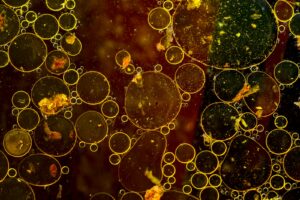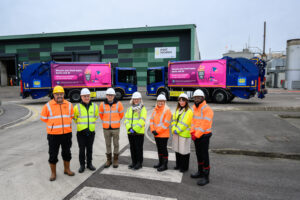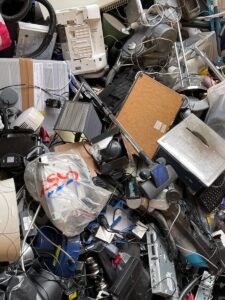How music festivals can make recycling rock
A new recycling scheme collected half a million used paper cups at the Reading and Leeds music festivals in 2017. It was jointly funded by the international packaging manufacturer Huhtamaki and the drinks giant Carlsberg. All the collected cups were taken from the festival sites and reprocessed. They will be turned into new products, such as garden furniture, tubes and playmats.
Environment Journal spoke to Huhtamaki’s global category director, Neil Whittall about the project and how packaging manufacturers can make their products more environmentally friendly.
How important is it for companies like Huhtamaki to make cups and other packaging more sustainable?
Whilst the primary role of packaging is to protect the product and the consumer, the sustainability of our products is very definitely a priority for us. We continuously innovate to minimise environmental impacts across the value chain and improve the sustainability of our existing and new products.
All the products we provide for on-the-go food and drink are responsibly-sourced and manufactured. Our products can either be recycled or composted and we always consider the most appropriate materials in our design, and review these on a regular basis.
We do recognise that recycling infrastructure for our products may be limited and we are working in partnership with a range of organisations to make it easier for consumers to dispose of our products correctly, so that they can be collected and recycled.
In what ways is the company making its packaging more sustainable?
All of the paperboard we use in Europe is fully traceable to sustainably managed, certified sources. Sustainable forestry practices are very important to us because they respect and uphold the ecosystem of the forest as well as ensure that forests continue to flourish without depletion of natural resources, making it a natural and valuable renewable resource.
We are a pioneer in the use of biodegradable raw materials. Our latest innovation is the Future Smart paper cup, which is 100% plant-based, including the polymer coating, which is made from by-products from sugar cane processing. We were also the first manufacturer to launch a fully compostable range of foodservice packaging – our Bioware range.
We have invested in capabilities so we are able to use recycled PET (rPET) from post-consumer recycled bottles in our clear plastic cups and lids for cold drinks.
We also recognise that whilst all our products can be recycled, they are not always collected for recycling. We are committed to making it easier for consumers to recycle our products to increase recycling rates.
We are directly supporting projects, such as recycling cups at the Reading and Leeds festival, and working with our local councils in the UK to put more cup recycling points into high traffic, street locations.
We are also taking a leading role with a number industry bodies to enable and increase the recycling of disposable paper cups. This includes the recent agreement with ACE UK to allow cups to be collected and recycled through the specialist infrastructure which currently exists for beverage cartons.
Are there some materials, which are easier to recycle than others?
Most packaging products can be recycled and some are technically easier to recycle than others, such as single material products. However the biggest driver for recycling rates is how easy it is for the consumer to recycle.
Does the public need to be made more aware/educated of how to recycle packaging?
Studies have shown that clear, easy to understand information helps consumers to recycle more products, more often and improves the quality of the materials collected. Alongside this, easy to access collection either through domestic collections or through bins in public spaces, also increases recycling rates.
Helping to support better consumer understanding of how, when and where to recycle our products is an area that we have been working on through our relationships with industry bodies.
Is there anything local authorities could do to ensure less packaging and cups go to waste?
We are not really in a position to comment on the actions of local authorities.
You recently co-funded a scheme with Carlsberg which recycled nearly half a million used paper cups at Reading and Leeds festivals this year. How did you get involved with that and how successful was it?
Huhtamaki became involved with the project as part of our work to increase opportunities to recycle our products. The scheme involved Festival Republic, Simply Cups, Carlsberg and Pronto Pack who are a specialist distributor to the festival market.
Disposable cups are the easiest, safest and most hygienic option for drinks served at festivals (and other outdoor events). As these events take place in a defined area, over a short space of time, they are an ideal opportunity to ensure as many cups as possible are recycled from the event.
The two projects were extremely successful, resulting in almost half a million or more than six tonnes of cups being recycled.
Would the scheme have applications for other areas, such as coffee cups?
Coffee cups were included in these schemes but recycling of coffee cups is now becoming widespread, both through stores, offices (where national operators such as Simply Cups and Veolia offer a service) and now through the ACE UK bring banks. We are also working with ACE UK to get cups included in local authority kerbside collections, alongside beverage cartons.
Will you be looking to get involved in more recycling projects in the 2018 music festival season?
Yes we plan to offer the scheme next year and hopefully extend it to more events.















